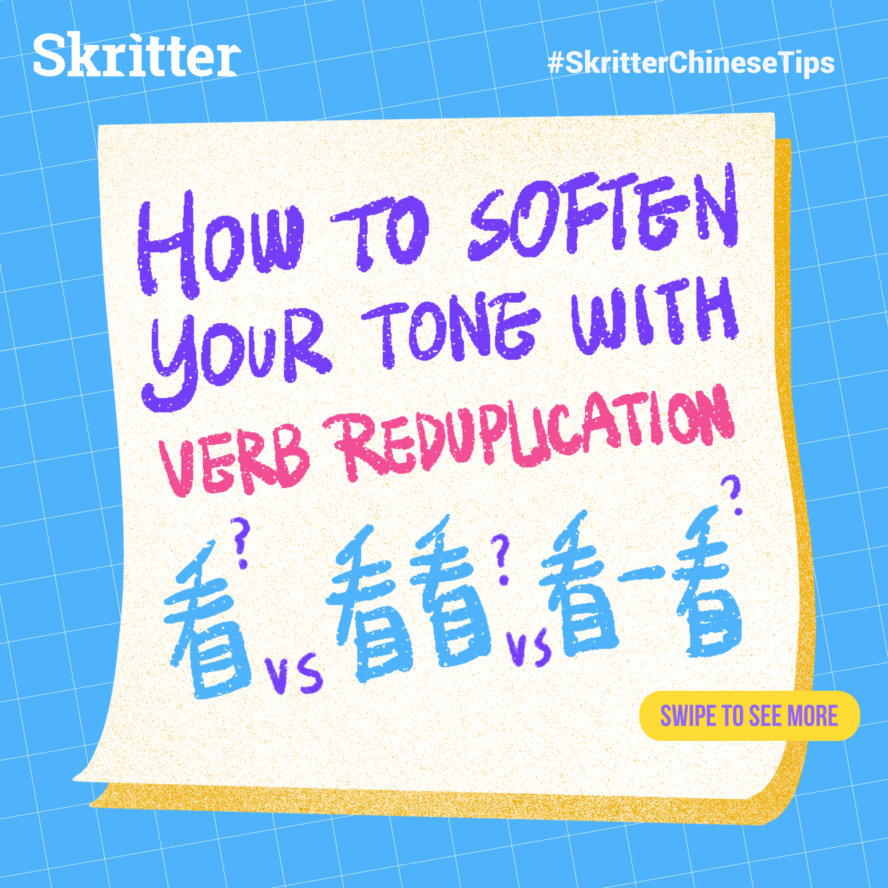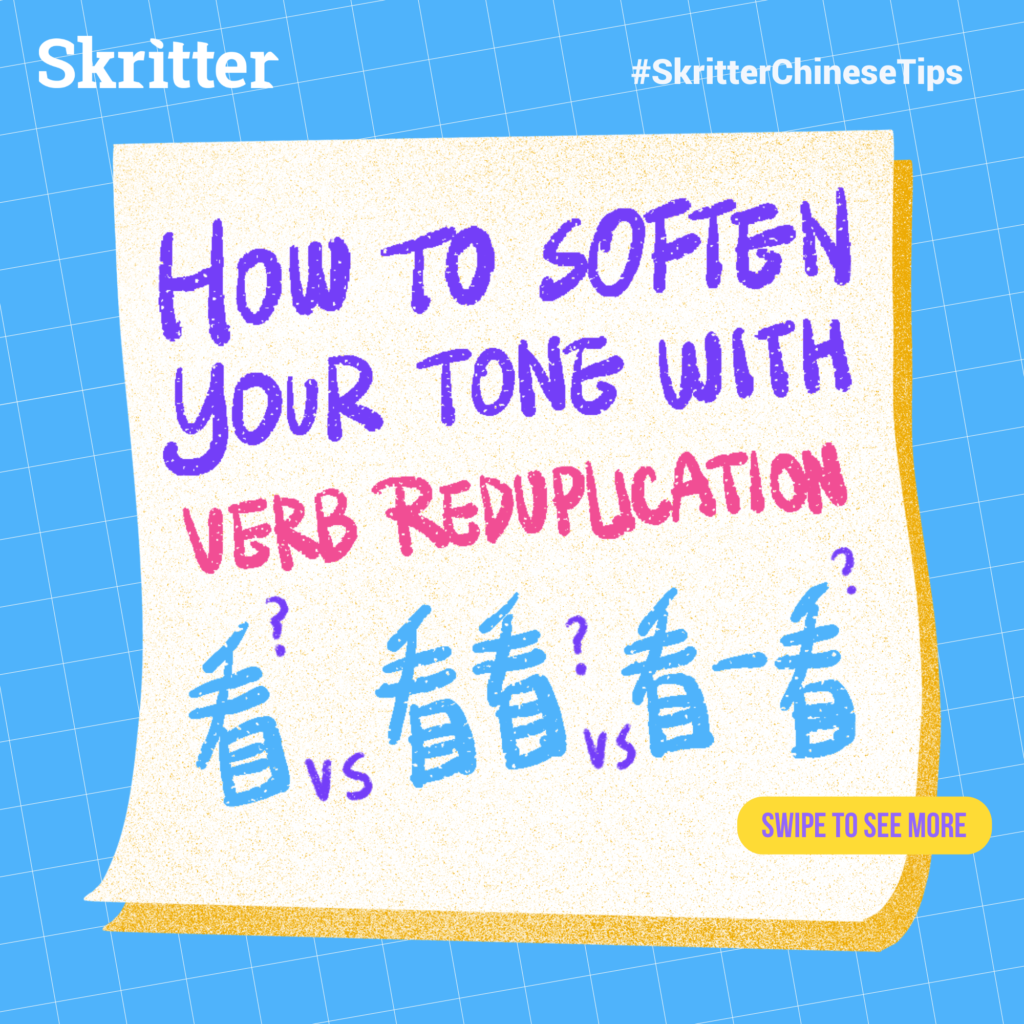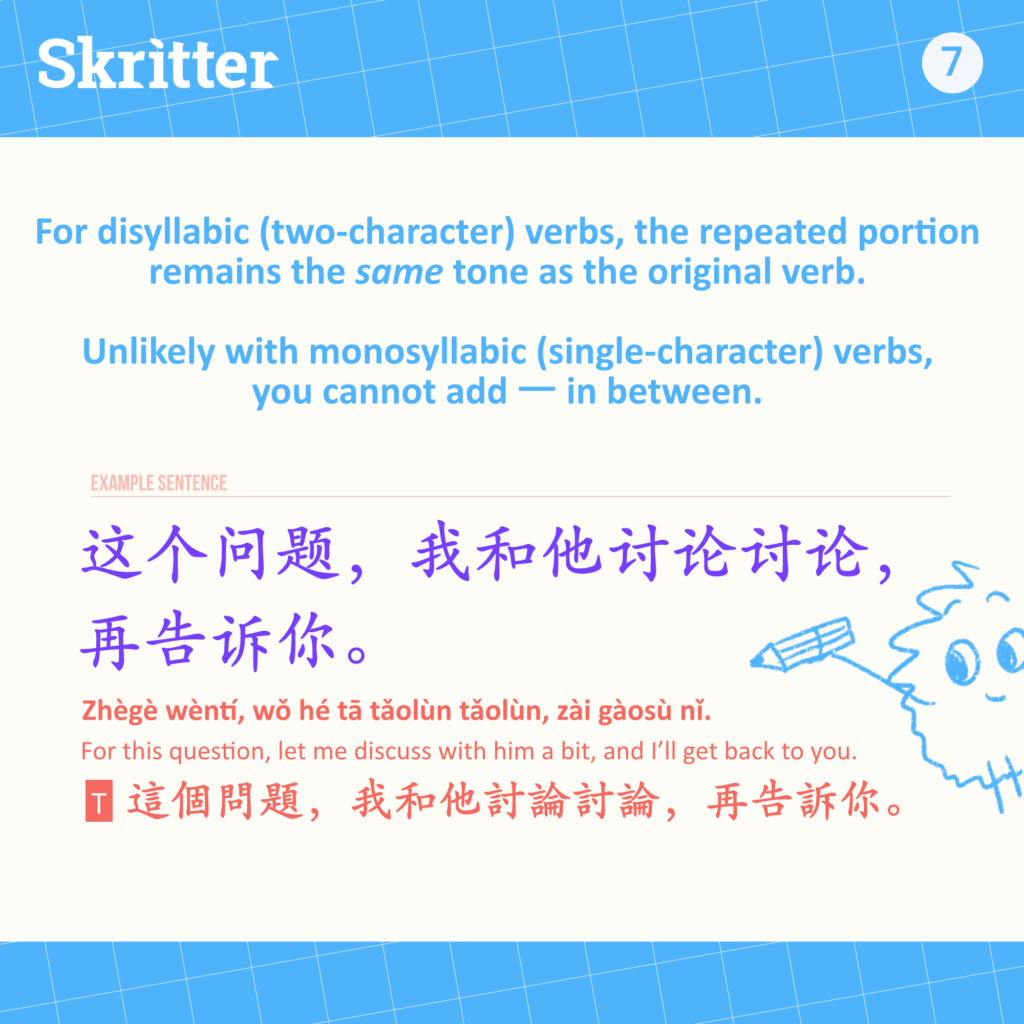In Mandarin, we can repeat some words, usually verbs and adjectives, to soften the meaning and tone of expression slightly.
Take a look at the gallery post below from our #SkritterChineseTips mini-lessons from Instagram.
1
In Mandarin, we can repeat some words, usually verbs and adjectives, to soften the meaning and tone of expression slightly. Let’s take a look at some of these verbs!
- 看书 kànshū: to read
- 看看书 kànkan shū: to read a bit
2
Repeating a verb, like in 看看书, indicates doing something “a little bit” with the action done rather casually. Only volitional verbs, things we willingly do, can be reduplicated, for example:
我喜欢听音乐。周末就在家听听音乐,看看书。
Wǒ xǐhuan tīng yīnyuè. Zhōumò jiù zài jiā tīngting yīnyuè, kànkan shū.
I enjoy listening to music. On the weekend, (I) just stay home and listen to some music and do some reading.
3
Many verbs in Mandarin are Verb-Object structure, such as 说话 shuōhuà “to speak words” and 跑步 pǎobù “to run”. In V-O structures, only the verb is repeated.
- 说说话 shuōshuo huà “to talk a bit, to chat”
- 跑跑步 pǎopao bù “to run a bit”
- 看看电视 kànkan diànshì “to watch some TV”
4: Tone Changes!
Yes, as you saw in the previous examples, there are some tone changes going on. When a monosyllabic verb is repeated, the repeated (second) one is usually a neutral tone because the first one is the main verb and takes the “stress“.
- 吃吃东西 chīchi dōngxi “to nibble, to snack”
- 出去走走 chūqù zǒuzou “to take a stroll outside”
5
For monosyllabic verbs, 一 can be added between the original and the repeated verb. The meaning stays the same, but the repeated verb will remain the same tone as the original.
- 说一说 shuō yìshuō
- 吃一吃 chī yìchī
- 走一走 zǒu yìzǒu
- 看一看 kàn yíkàn
- Note: tone changes for 一 yī:When followed by a 4th tone, 一 is pronounced as a 2nd tone. When followed by a 1st, 2nd or 3rd tone, 一 is pronounced in the 4th tone.
6
What about disyllabic (two character) verbs? Most of the volitional verbs can be reduplicated to indicate doing it relatively casually or soften the tone of the sentence.
- 讨论讨论 tǎolùn tǎolùn: “to discuss a bit”
- 整理整理 zhěnglǐ zhěnglǐ “to tidy up a little”
- 参观参观 cānguān cānguān “to casually visit”
Card 7:
For disyllabic (multi-character) verbs, the repeated portion remains the same tone as the original verbs. Unlikely monosyllabic verbs, you cannot add 一 to these.
- 这个问题,我和他讨论讨论,再告诉你。
Zhègè wèntí, wǒ hé tā tǎolùn tǎolùn, zài gàosù nǐ.
Regarding this topic, let me discuss it with them a little and then I’ll let you know.
We hope you found this lesson useful. Feel free to comment on the post below with any questions.










